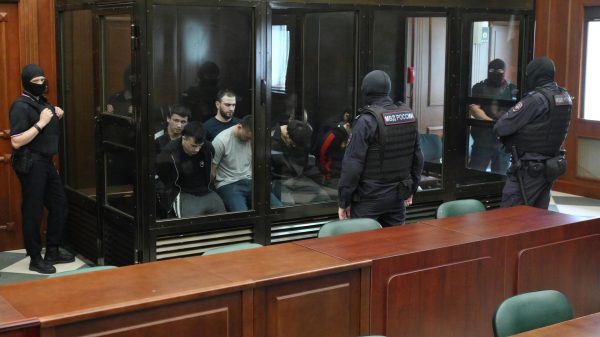Airbnb has raised the price of its shares before its initial public offering this week and could float with a valuation of as much as $42bn (£31.5bn).
In a government filing in the US on Monday, Airbnb said it expects to price its shares between $56 and $60 each, up from a range of $44 to $50 earlier this month.
Airbnb is expected to issue a final share price late on Wednesday before its IPO on Thursday on the Nasdaq stock market in New York.
The new price would let the San Francisco-based home-sharing company raise up to $3.4bn in the offering, with a valuation of $42bn at the upper end of the range. That is more than double the $18bn the company was valued at during a private fundraising round in the spring, when the pandemic shut down travel and its prospects were uncertain.
Airbnb struggled in the immediate aftermath of the virus outbreak. In May, it cut about 1,900 jobs and ended projects not directly related to its core business. But as lockdowns eased, more travellers opted to book homes instead of hotels, helping Airbnb to post a surprise profit for the third quarter.
The company’s stock market debut will be one of the largest US IPOs of 2020, which has already been a bumper year for flotations.
Airbnb was launched in 2007 as a website to take bookings for rooms during conferences, including the Democratic National Convention that year in Denver. Some of its other investors include the Hollywood actor Ashton Kutcher, as well as the buyout firms General Atlantic and TPG.
Sign up to the daily Business Today email or follow Guardian Business on Twitter at @BusinessDesk
Airbnb has more than 7m million listings on its platform, run by 4 million hosts worldwide.
Peter Garnry, head of equity strategy at Saxo Bank, said that as Covid-19 vaccines are rolled out, travelling is likely to rebound to pre-pandemic levels.
But he cautioned: “The key risk factors for Airbnb are the long-term impact on travelling from the Covid-19 pandemic and whether it has changed people’s habits. The company is also a target for regulation by major cities that are protecting their hotel industry against people lending out their private homes at lower prices than hotels.”























































Свежие комментарии